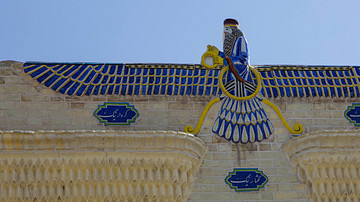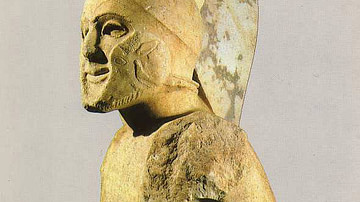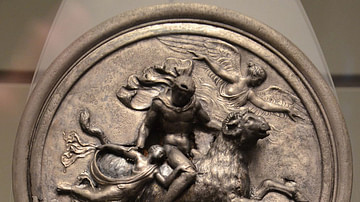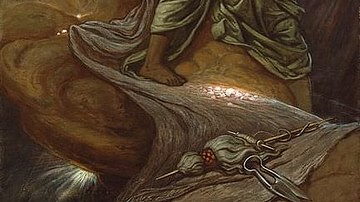Search
Did you mean: Isis?
Search Results

Definition
Twelfth Night
Twelfth Night, or What You Will is a romantic comedy by William Shakespeare (l. c. 1564-1616), written between 1600 and 1601 and first performed on 2 February 1602. As suggested by the title's allusion to Twelfth Night – the night before...

Definition
Zarathustra
Zarathustra (also given as Zoroaster, Zartosht, Zarathustra Spitama, l. c. 1500-1000 BCE) was the Persian priest-turned-prophet who founded the religion of Zoroastrianism (also given as Mazdayasna “devotion to Mazda”), the first monotheistic...

Definition
Nyx
Nyx (also known as Nox or the Night) is the personification of the night in Greek mythology. Coming from Chaos (Void), Nyx is a primordial deity (Protogenoi). The Protogenoi represent the physical and elemental forces of the world and consist...

Definition
Leonidas I of Sparta
Leonidas was the Spartan king who famously led a small band of Greek allies at the Battle of Thermopylae in 480 BCE where the Greeks valiantly defended the pass through which the Persian king Xerxes sought to invade Greece with his massive...

Definition
Golden Fleece
The golden fleece is the fleece of a flying, winged ram named Crius Chrysomallos, or 'Golden-fleeced Ram', in Greek mythology. It is best known from the story of Jason and the Argonauts, who were sent by Pelias, the ruler of Iolcos, to retrieve...

Definition
Roman Forum
The Roman Forum or Forum Romanum of ancient Rome was the bustling religious, administrative, legal, and commercial heart of the city from the 7th century BCE onwards. Made increasingly grandiose and ceremonial in function by the Imperial...

Definition
Mark Antony
Marcus Antonius (l. 83-30 BCE, known popularly as Mark Antony) was a Roman general and statesman best known for his love affair with Cleopatra VII (l. c.69-30 BCE) of Egypt. As Julius Caesar's friend and right-hand man, he gave the funeral...

Definition
Ahriman
Ahriman is the evil spirit in Early Iranian Religion, Zoroastrianism, and Zorvanism, Lord of Darkness and Chaos, and the source of human confusion, disappointment, and strife. He is also known as Angra Mainyu (evil spirit or dark spirit...

Definition
Theogony
The Theogony is an 8th-century BCE didactic and instructional poem, credited to the Greek poet Hesiod. The Theogony was, at first, not actually written down, rather, it was part of a rich oral tradition which only achieved written form decades...

Definition
Ancient Persian Mythology
The mythology of ancient Persia originally developed in the region known as Greater Iran (the Caucasus, Central Asia, South Asia, and West Asia). The Persians were initially part of a migratory people who referred to themselves as Aryan...